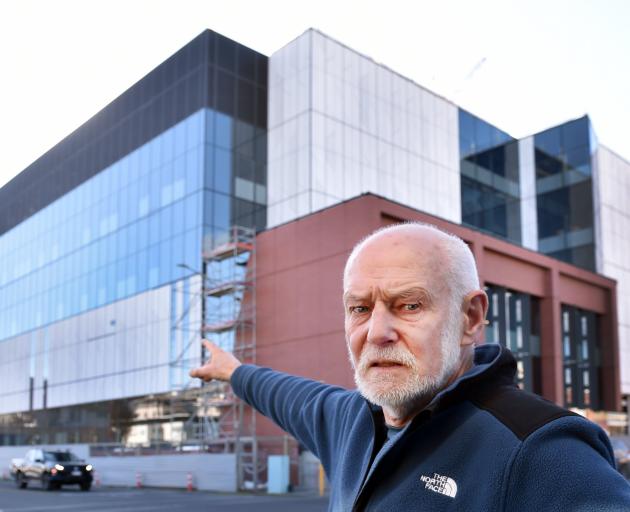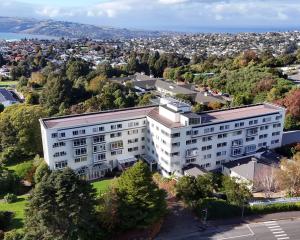
Pete Hodgson said the latest information showed options for building a functional hospital were known to be unachievable unless the government increased the budget.
It risked presiding over a "shambles" if it did not, he said.
"No matter what option is finally progressed, the final cost will exceed the limit that ministers set," Mr Hodgson said.
Health Minister Shane Reti and Infrastructure Minister Chris Bishop last month announced they were seeking urgent advice on options to keep the project within a budget that had previously been increased to $1.88b, as ballooning costs had to be reined in.
Mr Hodgson, the former hospital build steering group chairman, said he had been able to triangulate information over the weekend from "many and widely differing sources".
His information was "far from perfect", but it was clear the $1.88b target could not reasonably be achieved, he said.
"Of course, officials will follow orders and diligently hack back the inpatient block until they do indeed reach an option that comes under $1.88b," Mr Hodgson said.
"But the result would not be a functional hospital. It would instead be a shambles."
Mr Bishop said the government had no intention of responding to "random reckons from the former head of the project".
"As most people recognise, this project has been troubled for a long time, including during the period when Mr Hodgson was leading it," Mr Bishop said.
The government would receive advice from Health New Zealand Te Whatu Ora (HNZ) in due course, he said.
HNZ confirmed one option it was looking at was deletion of a floor from the planned inpatient building.
The hospital steering group was last week presented with interim design options for its consideration to deal with budget challenges.
"The option to exclude one of the floors was one of the many options presented," an HNZ spokeswoman said.
No option had been endorsed and none had yet been put in front of ministers, she said.
Dunedin Mayor Jules Radich had been optimistic the government could find a way to build a suitable hospital for $1.9b.
"If it is determined now that they can’t do it, they’ve still got their [election] promise," he said.
"Their promise still stands."
Mr Radich said he was opposed to losing a floor and the government should get on with the job of building the hospital the southern region needed.
The right size for the hospital had already been established, he said.
"Any reduction from that is unacceptable and it is entirely inappropriate that the size of this hospital should be determined by a non-clinician bean-counter just simply trying to save some money at the expense of the healthcare of the South," Mr Radich said.
Mr Hodgson said some costs could be stripped out.
"I imagine that there have been some rather extended and exacting discussions with the main contractor and the principal subcontractors in recent months," he said.
The construction environment was a little more benign now, as global inflation and supply chain issues were easing, he said.
"Various prices and contingency allowances might therefore have also eased," Mr Hodgson said.
"But after several months that work is now complete and it is not nearly enough to bring the project within budget."
Mr Hodgson said final prices were not set by "ministerial fiat".
Taxpayers must demand good cost control, governance and contracting methodology and an openness to innovation, he said.
"Thereafter the market determines the cost of the final product, not ministerial press statements."












